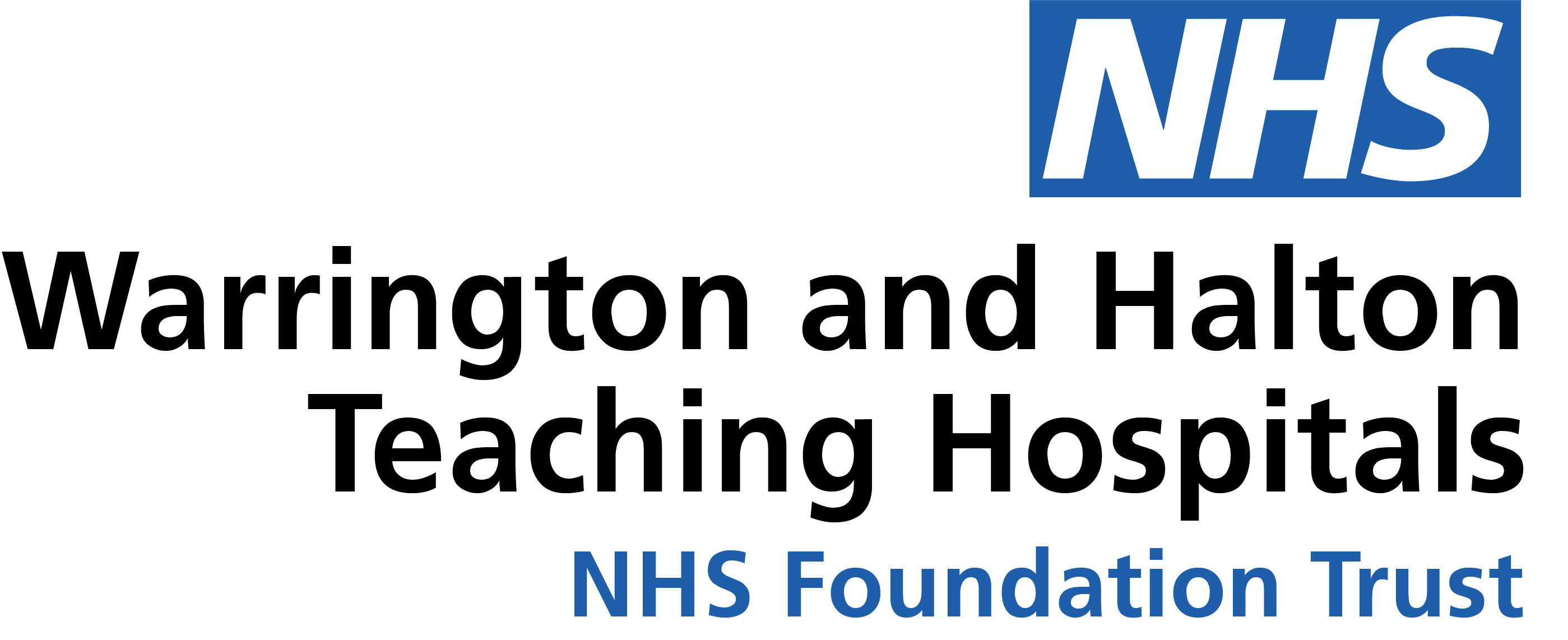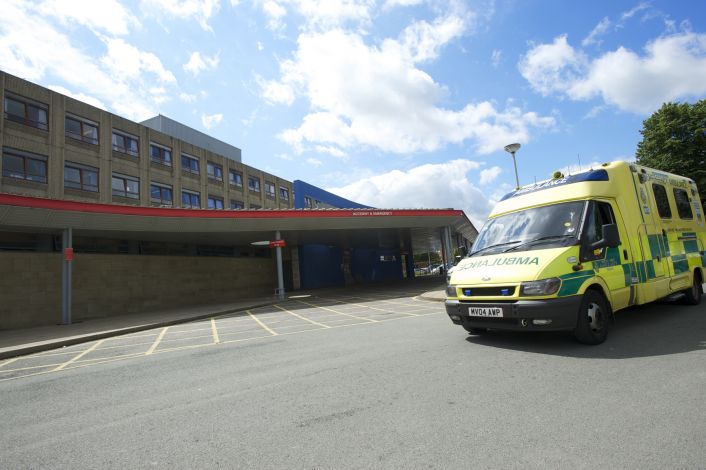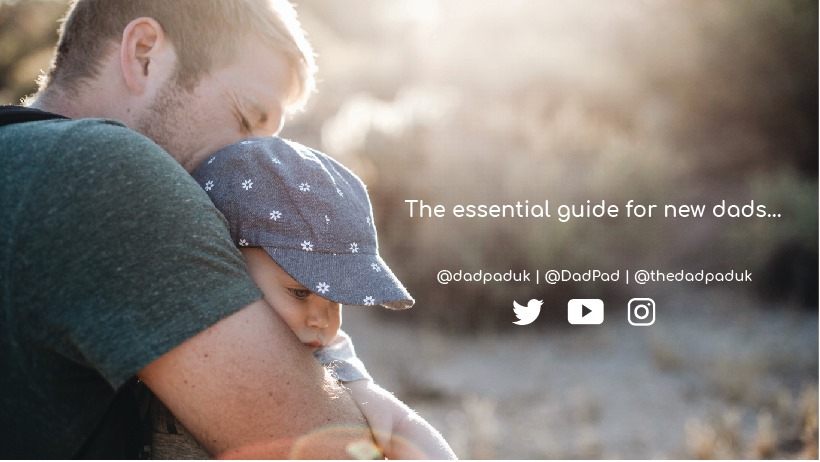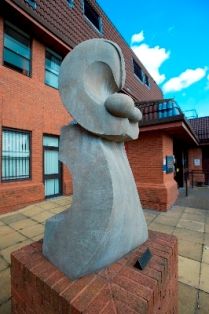
We are here to support you through your maternity journey offering a flexible service to meet your individual needs.
Working to all the recommendations in The National Better Births document, we are able to offer further reassurance in our continuous improvement culture. We will support you to make informed choices around where to birth your baby and hold the professional skills to support birth either in the home or in our Maternity Unit. All facilities provide a spacious, clean bright environment for women their babies and families.
We work as a close multi professional team to ensure that you receive the care that you need: In the right place, at the right time with the right professionals supporting your journey. Whether you have a straightforward pregnancy or more complex needs we will work with you to provide safe, individualised and effective care.
Our Maternity Unit supports an average of 8 women each day to birth their babies, whether your choice is to deliver at home or here at Warrington in our modern, fully equipped Maternity Unit.
We will welcome you to have your baby with us at any stage of your pregnancy, even if you have already arranged to have your baby elsewhere.
When to contact us
If you experience any of the following we would advise that you contact the hospital for advice call the Birth Suite on 01925 662334.
- If you experience regular contractions which are approximately 5 minutes apart and last at least 1 minute over a few hours OR at any time if you think you may be in LABOUR
- If you experience contractions before 37 weeks pregnant
- If you think that your waters have broken even if your contractions have not started
- If you are worried about the pattern of your baby's movements
- If you experience any continuous abdominal pain
- If you have any fresh red bleeding
- If you feel unwell, particularly severe headache, severe heartburn and blurred vision
- If you are experiencing severe itching.
Contact Numbers
Antenatal Clinic Appointments - 01925 662260
Antenatal Clinic Midwives - 01925 662667
Antenatal Day Unit - 01925 275203
Triage Assessment - 01925 275200
Patients over 18 weeks of pregnancy can ring for advice for any concerning symptoms in their pregnancy (e.g. reduced fetal movements, vaginal bleeding, abdominal pain, feeling generally unwell). Any patients who think they are in labour or who’s membranes rupture should also call this number for advice on when to attend the unit. Midwives on Triage can either provide advice for symptoms, signpost to the correct area for treatment or will invite women in for assessment.
Birth Suite (labour ward) - 01925 662334
Patients can call this number to discuss their pre-arranged induction of labour or caesarean section.
Community Midwives - 01925 662092
Maternity Ward C23 - 01925 662258
For postnatal non-emergency advice for parents after discharge including infant feeding support and guidance. Ward C23 are unable to support with unwell babies, please contact an ambulance or attend Accident and Emergency Department if you have concerns around your babies wellbeing. Postnatal patients that become unwell will need to contact the Maternity Triage department. Please be aware that ward staff are unable to provide updates around individual patients over the telephone.
The Nest - 01925 662043
Gynaecolgy assessment unit (GAU) - 01925 662063
The Gynaecology Assessment Unit open in Croft Wing 8.00am to 8.00pm - seven days a week where you will be assessed by the Gynaecology Advanced Nurse Practitioner or a Gynaecology doctor.
We do not take self-referrals unless you have already been seen in the department for an early pregnancy problem up to 18 weeks or a current gynaecological problem - you will need to have a clinical referral directly to the unit from your GP , midwife or 111 which would help you avoid the emergency department (ED).
You can attend an Urgent care centre or ED who can then refer you to GAU, but it would be better for you if you can access the service without attending these areas due to waiting times and how busy these areas can become.
Our Maternity Service uses BadgerNet Maternity Notes. This is an electronic system aimed at giving mothers more access to and control of their pregnancy records and care notes.
To self-refer to us via BadgerNet or for more information about BadgerNet Maternity Notes visit here.
You are pregnant – Congratulations on your pregnancy
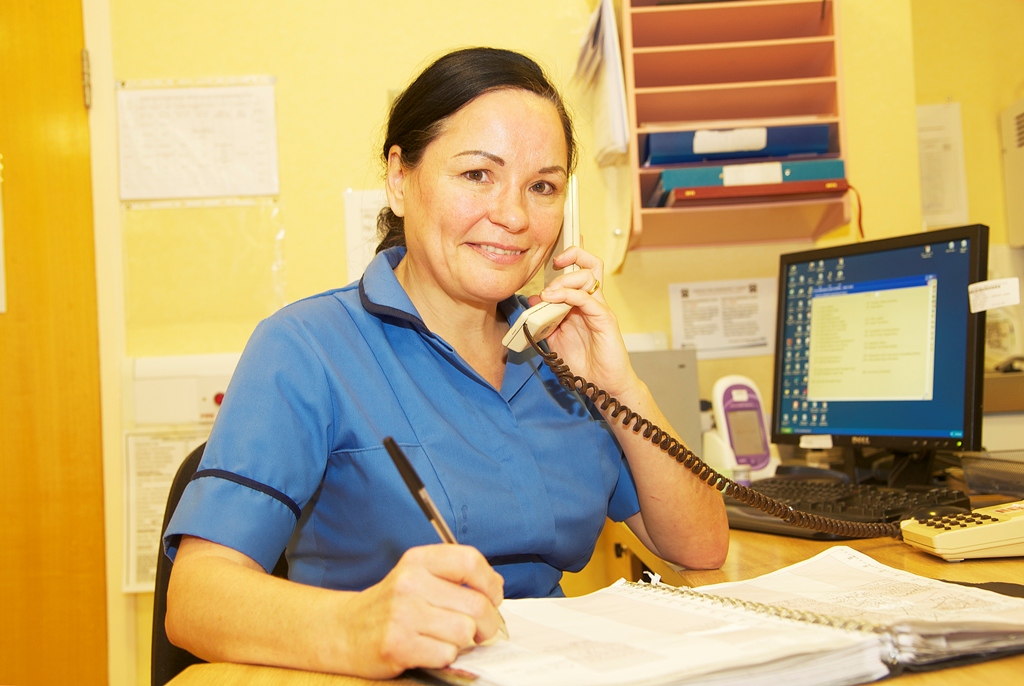 “Having a baby is a life-changing event that is different for everyone. It can be both exciting and bewildering, with lots of questions, and many choices to make.
“Having a baby is a life-changing event that is different for everyone. It can be both exciting and bewildering, with lots of questions, and many choices to make.
When the time comes for you to have your baby, you want to be in a place where you feel comfortable, relaxed, confident and secure, and for everything to go as smoothly as possible.
At Warrington Hospital, we will be with you every step of the way, offering you help and advice throughout your pregnancy, care and reassurance when it’s time to give birth, and all the guidance you need as you embark on your journey through pregnancy to parenthood.
Initial booking appointment
Once your pregnancy has been confirmed, you can contact us directly to arrange a booking appointment with a midwife, whether you live within the Warrington area or outside of the catchment area you can self-refer to us, you do not need to be referred via your GP. Please complete the form below. If you do not hear from us within 5 days please contact the Community Midwives Team on 01925 662092 between Monday - Friday, 9:00am and 5:00pm (answerphone available out of office hours).
BadgerNet self-referal form - Badger Notes - Self-refer your pregnancy to Warrington and Halton
For more information on the following vaccines: Covid vaccines, Whooping cough vaccine, flu vaccine watch the video.
As a pregnant woman from a Black, Asian or minority ethnic (BAME) background, you may feel worried about coronavirus. Your maternity team is still here to help you, so contact them as you would normally. They will be working together with you and providing you with extra support during this unprecedented time.
Some studies suggest that BAME pregnant woman are more likely to be admitted to hospital with coronavirus than white women, so maternity services have been asked to take extra precautions to keep you safe, which includes prioritising your care and access to services.
It is also important that you take extra steps to protect yourself and follow the advice about how to avoid getting coronavirus. If you think you have coronavirus then alert your maternity team and they will advise you about what to do next.
Remember to attend all your antenatal appointments and seek help early from your midwife or maternity team if you have any concerns about your health or your baby’s health.
Get help early so you have the best chance of recovery. Keep up-to-date with all the latest coronavirus pregnancy and birth advice at www.
For access to maternity safety information for Black, Black British, Asian and Asian British, click here for access to different language leaflets. or scan the QR code below.
At your booking appointment, your midwife will ask a series of questions about you, previous pregnancies (if applicable) and your family history; to identify if there are any reasons why we may need to monitor you more closely during your pregnancy (for example if you have complex care factors i.e diabetes, a medical condition or if you previously had a baby that was small or premature).
You will be offered an ultrasound scan at around 12 weeks to help determine the date that you can expect to give birth. In addition, we will offer a range of wellbeing and other tests to help us determine the right care for you.
Women may be booked under either a midwifery led care pathway or if you have any existing risk factors or develop any complications; your midwife will discuss these with you, and you may be referred to our Obstetric team for their opinion. In some cases, women will have shared care between the midwife and consultant team but may still be appropriate for low risk options in labour.
However, regardless of whether you are initially booked for Midwife Led care or obstetric care, your midwife will continuously review you and your baby during your pregnancy, labour and birth to ensure that you are both well; and refer you for additional support from the medical team if the need arises.
Our Maternity Service is now using BadgerNet Maternity Notes. This is an electronic system aimed at giving mothers more access to and control of their pregnancy records and care notes. For more information on this click here.
The Smokefree Pregnancy Service are specialist midwives that see pregnant women who wish for support to stop smoking.
For more information click here.
Early Pregnancy Assessment Unit (EPAU)
This well-established service has been looking after women with early pregnancy complications since 1997. This nurse led service is open to direct referral from primary care, emergency department, community midwives and sexual health care providers. Women with a previous pregnancy loss can also self-refer for an early reassurance scan from 6 weeks gestation onwards. This service is available Monday to Friday 0830 – 5pm. The EPAU has immediate access to Gynecology Assessment unit for urgent clinical review in situations that need acute clinical care. Clinical practice within the EPAU follows NICE guidance for the management of miscarriage and ectopic pregnancy and aims to deliver care holistically.
Gynaecology Assessment Unit (GAU)
This service was launched June 2018 and offers a 7-day service for the management of urgent gynecology problems. Women can be referred directly from their GP, Midwife or the Emergency Department. This enables women to be seen in a specialist area with the relevant expertise, in a timely manner. The GAU has access to urgent imaging and direct admission to ward C20 if necessary.
The GAU aims to see and treat most cases without the need for admission, managing many clinical problems on an outpatient basis, with relevant follow up and monitoring through either GAU, EPAU, or Outpatient gynecology.
Recurrent Pregnancy Loss Clinic
This is a consultant led clinic available to women who have suffered two or more consecutive losses. Women and their partners are referred for investigation, treatment and monitoring of subsequent pregnancies. Initial consultation is at the Halton site and subsequent Early Pregnancy Support clinics for rainbow babies are at both sites. In a new pregnancy, women are seen weekly for reassurance scans and medication to support their pregnancy if necessary. The clinic is supported by the services of the bereavement support nursing sister Debbie Yates, women and their partners can access one to one home visits or telephone consultations depending upon their emotional needs.
9:00 am - 5:00pm - (01925) 662609
Out of hours (01925) 662063
Pain or bleeding over 18 weeks pregnant
If you are over 18 weeks gestation and are experiencing the symptoms above, contact Birth Suite directly in the first instance on (01925) 662334.
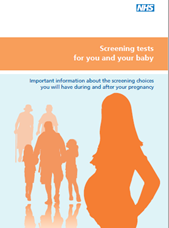 We offer an extensive range of antenatal and new-born screening services to try to find any health problems that could affect you or your baby. They are there to support you in making choices about care or treatment during your pregnancy or after your baby is born. Some tests are offered for your baby soon after they are born, so your baby can be given appropriate treatment as quickly as possible if needed. Before you attend your booking appointment with your midwife please take the time to read the screening information booklet (which you can click on the picture to access) that is sent to you with your booking appointment information. This will give you the information to help you make the decision regarding any screening tests in pregnancy. Your midwife can also discuss these with you.
We offer an extensive range of antenatal and new-born screening services to try to find any health problems that could affect you or your baby. They are there to support you in making choices about care or treatment during your pregnancy or after your baby is born. Some tests are offered for your baby soon after they are born, so your baby can be given appropriate treatment as quickly as possible if needed. Before you attend your booking appointment with your midwife please take the time to read the screening information booklet (which you can click on the picture to access) that is sent to you with your booking appointment information. This will give you the information to help you make the decision regarding any screening tests in pregnancy. Your midwife can also discuss these with you.
You can download an Antenatal and Newborn Screening Timeline to understand the optimum stages for testing.
Pulic Health England has a guide to screening tests with an animation film, which can be watched by clicking here.
For more information on screening tests please click here.
For more information on the Early pregnacy scan click here.
For more information on the Fetal anomaly screening: 20-week scan click here.
Screening tests for you and your baby (EN hardcoded) from NHS Screening on Vimeo.
Working in five teams of between four and six midwives across the Warrington area, our Community Midwives provide care in a variety of community setting. You will be given a named Midwife within your team who will plan and provide your antenatal care with you, in line with NICE guidance and your personal needs. We are working towards developing an integrated model of care to increased continuity of carer throughout pregnancy, birth and postnatal periods.
Following the birth of your baby the community team will continue to give you care and postnatal support in a number of community settings, including the home as well as the hospital and Children Centres, visiting in line with your family’s needs for up to four weeks post-delivery.
We will also provide when required an individualised feeding support plan and offer various visiting plans to support feeding. As part of this we are able to support you to initiate and continue to breastfeed for as long as possible.
The Community Teams also provide a parent education programme, hypnobirthing classes and an acupuncture clinic. Your Midwife can give you further information on how to access these services.
The ANC is facilitated Monday – Friday 8.30am to 6.00pm on 01925 662260.
If you require advice out of hours, we have midwives available to assist you on our Birth Suite on 01925 662334.
If you experience any concerns with your pregnancy you can self-refer to the Maternity Triage Unit for advice, review and assessment. Triage is a 24-hour service.
If you are asked to come to triage unit, the midwives will assess your concerns and direct you to the most appropriate professional for your care needs.
Some of the common reasons to attend triage are experiencing changes in the pattern of movements of your baby, you notice any blood or watery loss, headaches or blurred vision or itching in pregnancy.
During your appointment you may only need to be seen by the midwife who will review your care and transfer you to another department within maternity or discharge you home. If further assessment is required, the midwife will ask one of the obstetric team to see you.
You can contact the Triage assessment unit on 01925 275200.
Finding your way to the unit
We have moved to a new purpose-built unit at the rear of Croft Wing. From Croft Wing main entrance turn right and go round the building following the pink wayfinding signage to the unit entrance and press the buzzer for reception. There are four dedicated, sign-posted parking bays for visitors to the unit.
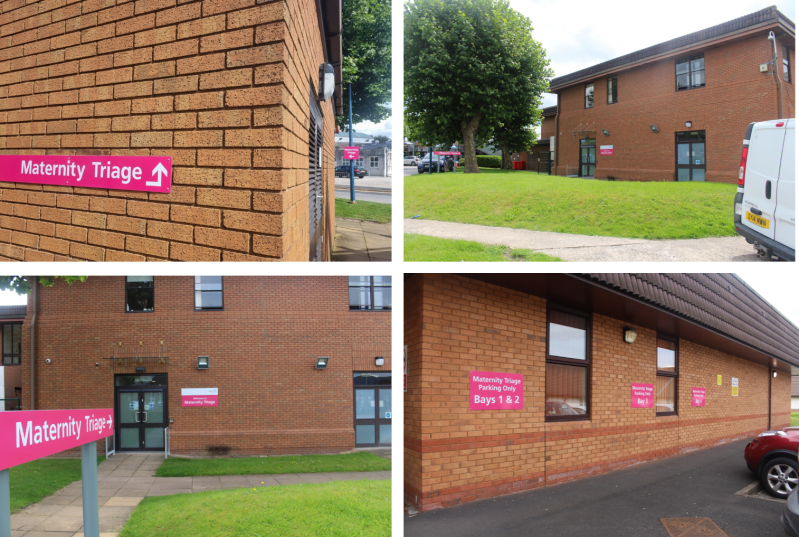
Our Antenatal Day Unit (ANDU) provides specialist services for women who need additional support. Your GP, Midwife, Obstetrician or other Health care providers may refer you to this department for ongoing management of your pregnancy. We run this service by appointment only.
We offer monitoring for conditions such as gestational diabetes, cholestasis, blood pressure and mum and baby wellbeing surveillance.
We also facilitate ultrasound scanning services with our Midwife Sonographer and a one-stop ‘Breech’ clinic for those women whose babies are in the breech position. Not only do we have a midwife who is highly skilled in ultrasound, but we also provide a specialist ultrasound service where your baby will be closely monitored by one of our three Fetal Medicine Consultants should any concerns have been identified on your routine ultrasound scan.
We also provide postnatal care for women who have been discharged from the hospital but whose babies are cared for on the Neonatal Unit.
ANDU is available Mon-Fri 9.00am - 5.00pm Tel: 01925 275203.
If you require advice out of hours, we have midwives available to assist you on our Birth Suite on 01925 662334.
This patient information leaflet Feeling your baby move is a sign they are well provides advice for women about how their baby should feel and move during pregnancy.
This information is for you if you would like to know about your baby’s movements during pregnancy. It may also be helpful if you are concerned that your baby has not been moving as much as usual or feel that your baby’s movements have changed.
It tells you about:
- What are normal movements for the unborn baby
- What affects how much you feel your baby move
- What you should do if your baby’s movements are reduced or changed
- What care you will have if your baby’s movements are reduced or changed
This information aims to help you and your healthcare team make the best decisions about your care. It is not meant to replace advice from a doctor or midwife about your own situation.
This information is based on the RCOG clinical guideline Reduced Fetal Movements.
Click here for access to Tommy's Feeling your baby move is a sign that they are well. These are also available in other languages.
Obstetric led care
Obstetricians are Doctors who specialise in maternity care, and are the lead professional for women with pregnancies which are considered to require medical input. If you are booked under obstetric led care you will attend some of your antenatal appointments with your midwifery team. However, most of your care will be provided by the obstetric team.
Shared care
Women in pregnancy who may require some obstetric input may be suitable for shared care. This means that you will see a named consultant to discuss and agree a plan of care with you so that your antenatal care can be shared between your named midwife and allocated consultant team.
Midwifery led care
Midwives are the lead professional for women with uncomplicated pregnancies. Midwives are experts in uncomplicated pregnancy. He/she will only refer you to a Doctor if complications arise. Your midwife will provide all your care and support you throughout your pregnancy, labour and postnatal period. All of your antenatal and postnatal care will be delivered in the community; for example in Children’s Centres, GP practices, or in your own home. You will only attend the hospital for routine scan appointments. If you are booked under Midwife Led care you may choose to give birth at home, or in our co-located Midwife Led Unit in the hospital.
Your midwife is trained to identify early potential problems. If the midwife has any concerns about you or your baby, he/she will refer you to one of the Doctors in the hospital at any time during pregnancy and labour. One of the most important decisions during your pregnancy will be to choose where you would like your baby to be born. We are here to give you all the information you need to help you to make the right decisions for you.
We want to make sure that you have all the information required to make an informed choice. If you have any additional questions, please speak to your midwife. When discussing where you would like to give birth it is important to take into account your personal preferences, as well as your medical and pregnancy history, and the facilities available in the different locations. Your midwife will discuss your options for place of birth at your booking appointment, throughout pregnancy and at a designated appointment at 36 weeks, and again when you go into labour, or the postnatal period.
Our pathways for you and your family include home birth, birth in the midwifery led unit or on our birth suite in hospital.
One of the most important decisions during your pregnancy will be to choose where you would like your baby to be born. We are here to give you all the information you need to help you to make the right decisions for you.
We want to make sure that you have all the information required to make an informed choice. If you have any additional questions, please speak to your midwife. When discussing where you would like to give birth it is important to take into account your personal preferences, as well as your medical and pregnancy history, and the facilities available in the different locations. Your midwife will discuss your options for place of birth at your booking appointment, throughout pregnancy and at a designated appointment at 36 weeks, and again when you go into labour.
Home birth
Home birth is becoming increasingly popular. If you are experiencing a straightforward pregnancy, giving birth at home is generally very safe for you and your baby. A recent study called the ‘Birth place study’ which looked at the outcomes of giving birth at home or a Midwifery led unit showed that low risk women who give birth at home have fewer interventions, less need for pain relief, have more chance of having a vaginal birth, less likely to have a caesarean section, and are generally more satisfied with their birth experience (NICE 2017; Hollowell 2011).
Information about the birth place study can be found on by clicking below.
Home births are planned in advance, and equipment is brought to your home from 37 weeks to ensure all is ready for the birth. However, if you decide to have a home birth later during your pregnancy, we will endeavour to support you with your choice. During your labour you will be supported at home by a community midwife, and a second midwife will be attendance for the birth.
Advantages of Giving Birth at home
- You may feel more relaxed and in control in your own environment
- You are more likely to have a vaginal birth and a reduced need for strong painkillers
- You have more control over your birthing environment, lighting, music and visitors
- The evidence suggest that you are more likely to experience a less painful labour due to the effects of feeling more relaxed in a familiar environment
- The evidence suggests that you are more likely to breastfeed successfully if you give birth at home or a Midwifery Led Unit, compared to an obstetric unit
- Greatly reduced need for medical intervention
- Pain relief options are available including gas and air, aromatherapy and hydrotherapy (you will need to provide your own pool)
Potential disadvantages of giving birth at home
When choosing a home birth all women should be aware that we would recommend transfer to an obstetric led unit if:
- You want to have an epidural as amethod of pain relief in labour
- Any problems developing during your labour, birth or early postnatal period. The most common reasons for transfer are where labour does not appear to be progressing well, or there are concerns about you or your baby, before or after birth.
What happens at a home birth once baby is born?
Following the birth of your baby, the midwife will stay with you until your baby has had its first feed, and to check that you and baby are well. Your midwife will arrange for you to be visited by your community midwife, and arrange for your baby to have his/her newborn screening tests. Otherwise, all of you care will be given at home, or in the postnatal clinics.
If you have any questions about home birth, your midwife will discuss this with you further.
The Nest midwife-led unit – what is it?
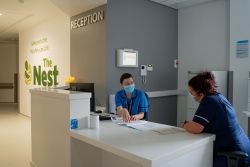 The Nest is a Midwifery-Led Unit (MLU), situated on the ground floor of Warrington hospital. It is the latest addition to the birth options available to the local women of Warrington and Halton area, as well as across the northwest. The maternity services also offer birthing options for home, in the Obstetric-led Birth Suite and the Birth Suite active birth rooms.
The Nest is a Midwifery-Led Unit (MLU), situated on the ground floor of Warrington hospital. It is the latest addition to the birth options available to the local women of Warrington and Halton area, as well as across the northwest. The maternity services also offer birthing options for home, in the Obstetric-led Birth Suite and the Birth Suite active birth rooms.
The Nest offers four ensuite birth rooms, each with its own birthing pool and two having outside access to the garden area. The state-of-the-art rooms have been designed to promote active, upright labours in a calm and relaxed environment.
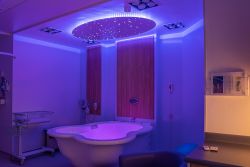 The equipment available reflects our ethos of promoting physiological labour, utilising birthing couches, birthing stools, mats and positioning pillows. Specialist lighting, Bluetooth speakers and projectors allow personalisation of the space to help create a home-from-home feel.
The equipment available reflects our ethos of promoting physiological labour, utilising birthing couches, birthing stools, mats and positioning pillows. Specialist lighting, Bluetooth speakers and projectors allow personalisation of the space to help create a home-from-home feel.
There is the option of early discharge home so women and families can be supported by the community midwifery team in the comfort of their own home. There is a large and inviting kitchen area for patients and staff use, as well as refreshment facilities in each room. Future plans include developing a private outside garden area for ladies to utilise during their labour.
A broad range of pain management/comfort measures options are available including complimentary therapies and pharmaceutical medications.
Who can use The Nest?
Women with uncomplicated pregnancies or individualised care plans will be allocated their Iabour care onto The Nest unless they choose to opt for alternative areas of birth. They will be cared for by experienced Midwives and Maternity Support Workers, who aim to provide 1:1 support throughout the Iabour and help each woman to birth her baby with as minimal intervention as possible.
When arriving at the hospital after labour has started, please go to The Nest reception in the Croft Wing to book in/ If you have had an uncomplicated pregnancy, or have an individualised care plan in place to birth with us, please call The Nest if you think you are in labour, or your waters have broken and you are over 37 weeks pregnant.
Why have we created The Nest?
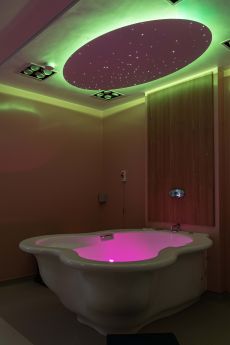 The Nest uses a Birth Centre model, based on facilitating a natural approach to pregnancy, labour, birth and care of the baby, offering personalised and supportive care. We recognise childbirth as a key life event and transition for mothers, babies and families; The Nest enables us to provide care and an environment that will be positive and memorable. For uncomplicated pregnancies, care in a Midwifery-Led environment reduces the risk of intervention and improves maternal outcomes.
The Nest uses a Birth Centre model, based on facilitating a natural approach to pregnancy, labour, birth and care of the baby, offering personalised and supportive care. We recognise childbirth as a key life event and transition for mothers, babies and families; The Nest enables us to provide care and an environment that will be positive and memorable. For uncomplicated pregnancies, care in a Midwifery-Led environment reduces the risk of intervention and improves maternal outcomes.
WHH aims to encourage a sense of autonomy for women and their families through supporting informed decision making and believing that all options should be discussed with the woman and her family.
Emotional wellbeing is promoted during pregnancy, labour and birth and through the early days and weeks following birth. Women’s human and reproductive rights are paramount to our care provision; respecting privacy, dignity and autonomy. Care is holistic, woman-centred and family focused, responsive to the reality of people’s lives, and supportive of equal access and cultural diversity.
Contact The Nest on 01925 662043.
Our Obstetric birth suite provides a welcoming environment for women who require closer monitoring during their labour. There are 7 birthing rooms, some having ensuite facilities or Jack and Jill shared bathrooms. We also have dedicated triage and assessment rooms, an induction of labour bay, two maternity theatres and a recovery area.
On the obstetric birth suite, you will receive care from a named midwife who will be allocated to provide one to one care in labour. In addition, there are Obstetricians, Neonatologists and Anaesthetists available if the need arises.
Even though you or your baby may require closer monitoring during labour, the Midwives will support and encourage you where possible to be active during your labour and to maximise the chances of having a vaginal birth, support you to have a positive experience of birth if nature needs a helping hand. Ipod docking station and CD players are available, as well as birthing aids including birthing balls to help you create a comfortable and relaxing birth environment. We have a wireless telemetry units which enables us to continuously monitor your baby during labour, allowing you to be fully mobile. This machine may also be used in the birthing pool where clinically appropriate.
However the birthing pool is not recommended for all women during labour. If you have any risk factors that would recommend that you give birth in an obstetric unit, then please speak to your midwife and obstetrician about whether water birth would be recommended in your case. You may be referred to the consultant midwfe birth choices clinic to help you explore your options and develop an individualised plan of care.
Advantages of Giving Birth on the Birth Suite
- The birth suite is the most appropriate place for women to give birth if they have any complex needs that require closer monitoring during labour and birth
- A Midwfe will be the main carer during your labour and provide individualised care to meet your needs
- Your Midwife will encourage you to have a vaginal birth, encouraging use of birthing balls and upright positions where possible
- There are experts on hand including Obstetricians and Neonatologists should the need arise
- Epidurals are available for pain relief
- The unit is well equipped for women and babies who require closer monitoring during labour and birth.
Possible disadvantages of Giving Birth on the Obstetric Birth Suite
Whilst the labour ward is the most appropriate place for women to give birth if they have any complex needs that require closer monitoring during labour and birth, the birth place study found that if low risk women gave birth on an obstetric unit, they were more likely to receive interventions that were unnecessary (for exmaple continuous CTG, breaking the water etc) which then increased the changes of further interventions, which can lead to increased rates of instrumental birth.
Latent labour is the preparation of your body for active labour. It is sometimes confused with active labour as it can be quite an uncomfortable time and includes uterine contractions, lower abdominal period type pain and backache. The body needs to go through this preparation in order to ensure that the neck of womb (cervix) is ready for the process of labour.
During pregnancy the cervix is long and closed. As the latent phase begins, the uterus (womb) contracts, thinning and softening the cervix. This is called effacement and usually occurs before the cervix starts to dilate (open up) The start of the active phase of labour occurs when the cervix becomes short, thin and is approximately 4 cm dilated and is accompanied with regular uterine contractions.
It can take up to 2-3 days to prepare your cervix for the process of labour. This can be a very tiring time, but with the right information and support we can help you prepare and manage this phase at home.
What are the signs of latent labour?
The time it takes for your body to prepare for labour is very individual. However, the latent phase of labour is considered to be one of the most significant parts of the whole process of childbirth.
Contractions may vary in length, strength and frequency. They often do not have a regular pattern, or if they are regular the contractions are mostly short lasting. It is normal for this to happen and for the latent phase to last over 24 hours.
Often women can typically experience period type pains, lower abdominal discomfort, backache and contractions. These contractions can be regular for a few hours and then disappear or may continue into active phase of labour.
As hormone levels increase and changes to the cervix occur, your contractions will develop into a regular pattern. These are characterised by an increase in length, strength and frequency, with a typical length of 60 -90 seconds. During this time you may experience a mucousy, blood stained discharge (‘show’). This is a positive sign that your body is preparing for labour. Generally a show should be 'jelly like’ and is often tinged with blood. It is not normally watery or be like a fresh red period.
What can I do to help?
Being relaxed is the most effective way of enabling your body to progress through all phases of labour.
During latent labour, the most appropriate place to be is at home. This will encourage you to feel relaxed and rest more comfortably. When we feel secure and safe in labour our bodies produce oxytocin. This hormone is responsible for good effective contractions. It makes sense that the best way to ensure our labour starts and continues normally is to surround ourselves with oxytocin rich experiences. So being at home in our own environment for as long as possible, surrounded by people who can support us and using techniques to help us stay relaxed, manage discomfort and stay positive all have a massive impact on the experience of labour.
We encourage you to eat and drink as normal. Women find it helps to be mobile and upright in latent labour, balancing rest with activity. Birth balls or stand chairs are useful to promote comfortable positions. Some women find that rocking, swaying and deep breathing techniques are helpful. Warm water assists in relaxation. Frequent warm baths or showers may be taken during this time. Understanding that touch, warmth, and water can all divert pain messages from the spine may be helpful for you as alternating between these activities for 20-40 minute periods will help to lesson any discomfort. Using the same principles of diversion of pain messages, if you have chosen to use a TENS machine, it may be useful to apply it during this phase. Please remember that TENS should not be used in water. Taking regular, oral pain relief, such as Paracetamol (no more than 8 in 24 hours) may be of benefit.
Remaining at home for as long as possible with the reassurance and support from the midwives at Warrington will enable you to prepare for and enter into labour in the best way possible. Please be assured that we are available to listen and support you at any time over the telephone and to advise you when come in to your chosen birth place.
Induction of labour is a process designed to start labour artificially. This is usually either because of a concern with either yourself or your baby or because your pregnancy is post mature. (Generally this is 12 days after your due date.)
What to expect?
We offer both inpatient and outpatient induction pathways. If your pregnancy has been straightforward we will recommend that following administration of propess in hospital you return home for a maximum of 24 hours.
On the day of your induction you will be admitted to the Induction Suite. When you arrive we will complete observations to ensure you and your baby are well. We will undertake an internal examination to determine the best method of induction. This may include the use of prostaglandin (propess pessary), breaking your waters, or oxytocin infusion. You may need a combination of the above to induce labour.
Can I do anything to help this process?
We would encourage you to balance rest with activity and continue to eat and drink as normal. Often women find it helpful to be mobile and upright. Some women choose to use a birth ball or stand chair to get comfortable. We would also encourage the use of water, either a bath or shower often helps with any discomfort and allows you to relax. Relaxation and a comforting environment can encourage natural endorphin production ( the body’s natural pain relievers), therefore it important that you use strategies and familiar things to help you remain calm.
For access to the Induction of Labour leaflet click here.
Your midwife will discuss your options for place of birth at your booking appointment, throughout pregnancy and at a designated appointment at 36 weeks, and again when you go into labour.
At any time during your pregnancy you can discuss options for place of birth with your midwife.
Sometimes women may choose care which does not fall within the usual pregnancy pathways. Women will be offered support with their decision making. This may be from the midwife, obstetrician, or our Consultant Midwife. Care plans will be developed between the woman and the team to ensure care is safe and meets the need of the woman.
If you would like to have an appointment with the consultant midwife, please speak to your community midwife.
If you need to remain in hospital for a period of time during your pregnancy or after the birth of your baby, you will be welcomed to and cared for on our Maternity Ward (C23).
Women and babies spend time on this ward for a variety of reasons but our team of Midwives, Carers and Ward Clerks work closely with the medical team and any other necessary team so we can provide you with a package of care which has been individualised for you and your family.
If you have any complications during your pregnancy we have a dedicated team of Midwives who will care for you until you are well enough to return home or ready to welcome the birth of your baby.
Extended visiting
We have listened to your feedback and recognised some women may want or need additional support overnight from their partner. We have therefore extended our ‘visiting times’ to allow you to have one birth partner to stay with you for extended periods into the night if you wish.
We have recently increased the care we provide in the postnatal period to included Transitional Care. If your baby requires additional care, for example treatment for jaundice, antibiotic therapy or if your baby arrives a little bit earlier than expected, our Transitional Care service allows us to care for you both together on the Maternity Ward rather than transferring your baby to the Neonatal unit. We will collaborate with the highly skilled neonatal team of consultants, nurses and carers to ensure where possible we provide the right treatment for your baby at your bedside.
We promote and support Infant Feeding choices, helping mums and their families to make evidence based decisions that work for them.
We provide expert care, education and support throughout your pregnancy and once your baby has arrived, we support you to feed your baby safely and to develop a strong and loving relationship with your child.
We promote breastfeeding as the biologically normal way to feed your baby and we aim to equip you with the skills and knowledge to develop your confidence so that breastfeeding your baby is an enjoyable and rewarding experience. If you choose to feed your baby with formula milk, we will support you to do so safely, in a way that responds healthily to your baby’s needs and develops a loving bond between parent and child.
Our “Parents guide to the Infant Feeding Policy” will provide more information on how we can help you on your journey.
To find out more about the Infant Feeding Support Team and our Breastfeeding support head over to our Infant Feeding page here.
Women who are pregnant with more than one baby are described as having a multiple pregnancy. The following leaflets provide information on mulitple pregnancies
- TWINS TRUST multiple pregnancy guide leaflet
- Royal College of Obstetricians & Gynaecologists - Multiple pregnancy leaflet
About 1 in every 50 pregnancies gives birth to twins. Triplets happen in about 1 in every 2000-3000 pregnancies. In very rare circumstances women may have more than three babies. If you are expecting twins, triplets or more, this booklet from the TWINS TRUST is for you (practical preparing for parenthood leaflet).
Whether you are first-time parents or already have children. It points you towards sources of help and suggests some questions to ask. It is intended to complement the information you get from your midwife, health visitor or doctor. You don't need to read it all in one go; dip in and out as it suits you.
If you require these leaflets in any other language/format please contact: TWINS TRUST
Babies lying bottom first or feet first in the uterus (womb) instead of in the usual head-first position are called breech babies. Click here for further information on Breech Babies.
Breech is very common in early pregnancy, and by 36–37 weeks of pregnancy, most babies turn naturally into the head-first position.
Towards the end of pregnancy, only 3–4 in every 100 (3–4%) babies are in the breech position. It may just be a matter of chance that your baby has not turned into the head-first position.
However, there are certain factors that make it more difficult for your baby to turn during pregnancy and therefore more likely to stay in the breech position. If your baby is breech at 36 weeks of pregnancy, your healthcare professional will discuss trying to turn your baby in the uterus into the head-first position by external cephalic version (ECV), planned caesarean section and planned vaginal breech birth.
If you require the Breech baby leaflet in another language or format please contact: Royal College of Obstetricians & Gynaecologists.
Over one in 10 women will have a planned caesarean birth. The day before your caesarean you will be asked to take some medication. This should be taken the night before and on the morning of your operation, as directed. You should not eat any food after midnight but may drink water until 6am on the morning of your operation. On the day of your caesarean you will arrive at the maternity unit early in the morning. In the maternity operating theatre, your support partner can accompany you and can stay by your side throughout the surgery, unless you require a general anaesthetic.
Most women have a spinal anaesthetic where the body goes numb from the abdomen to the feet. A catheter will need to be inserted into your bladder, and this will be normally removed after 6 hours. Once the operation starts, the baby is normally born within 10 minutes, and all being well you can have skin-to-skin contact with him/her in the theatre while the procedure is completed.
After the surgery you will spend a few hours in a recovery area, and a midwife will check your observations regularly. You can start bonding with and feeding your baby during this time. Your anaesthetic will wear off after a few hours. You will normally stay on the maternity ward overnight, depending on your recovery. You will be given regular pain relief. You will be helped to become mobile once the anaesthetic wears off. Early mobilisation and blood thinning injections to reduce the risk of developing blood clots after surgery.
You can find more information below
- NHS Choices (www.nhs.uk/conditions/caesarean-section/what-happens)
- National Childbirth Trust (www.nct.org.uk/birth/what-happens-during-elective-or-emergency-caesarean-section)
- RCOG: Choosing to have a caesarean (www.rcog.org.uk/en/patients/patient-leaflets/choosing-to-have-a-caesarean-section)
We have a dedicated neonatal unit that can care for your infant when they are born early or if they become unwell within the first few days of life.
We have 3 intensive care cots, 3 high dependence cots and 12 special care cots. If your baby needs admitting to us for any reason our dedicated team of Neonatal nurses, nursery nurses, pharmacists, ward clerk and housekeeper will work closely with the Medical staff and Advanced Neonatal Nurse Practitioners will look after your needs as a family. If your baby more specialised care we have our network within the North West to refer them to for more intensive input.
We are dedicated to supporting you to breast feed your baby, even if they are born prematurely. Our aim is to visit with you on the ward before you give birth and provide you with all the information and support to get you started and help you to sustain your milk until your baby is able to feed from the breast. As a result of these interventions we are seeing more babies having breast milk and establishing feeding over a longer period.
We have listened to your feedback and are in the process of refurbishing our parents lounge so you can have somewhere to relax away from the unit if you wish or just grab some tea/coffee and toast. Also we have bought some reclining chairs so you can have a lovely cuddle with your baby in comfort.
We have a dedicated Bereavement Suite on the Birth Suite, which has recently been refurbished to a high standard affording two rooms with ensuite facilities and a small kitchen area.
Led by the Bereavement support co-ordinator Debbie Yates, the whole team are committed to providing compassionate care to bereaved families. There is a follow up bereavement service based on individual family’s needs and we also offer additional support for subsequent pregnancies. We have recently launched the Tiny Stars Support Group specifically for families who have experienced early pregnancy losses.
In 2014 we received a Special Achievement Butterfly Award for service improvement and are finalists for Best Hospital Bereavement Care in the 2018 awards. Debbie Yates received the best healthcare professional Butterfly Award in 2016, all of which we are extremely proud.
We work in collaboration with local and national charities to help us deliver a high quality bereavement service as by working together we achieve so much more :-
Child Bereavement UK
Harry & Co
Life after Loss
North West Forget Me Nots and Rainbows
Sands
Lead Consultant - Dr Victoria Sephton, MRCOG
One Stop Fertility Clinic
This clinic offers couples who are having difficulty conceiving, full investigation, diagnosis and management of their subfertility. The clinic runs weekly at the Halton site, couples will be seen by a consultant or associate specialist. We offer a range of treatment options and ovulation induction is always supported with follicular tracking scans within the clinic, by the consultant team. If IVF referral is necessary women have the option to have their treatment within our satellite IVF service. Once a pregnancy is achieved we also offer early reassurance scans from 6 weeks gestation.
The Maternity Voices Partnership (MVP) is a forum which facilities collaboration between maternity providers and service users to ensure that services meet the needs of local women, parents and families. The role of this open group is to ensure that providers work together with service users to develop, review and drive services with a women led focus. It is a chance for you to have your say about how services are provided, discuss experiences of your maternity care and provide a voice for other women who will use local maternity provision in the future.
MVP aims to bring together mums, dad’s expectant families’ members of the local community and representatives from the maternity service in a relaxed forum to discuss experiences, provide feedback and shape the way future services are organised.

Chairsperson for Maternity Voice Partnership (MVP)
Lisa Welch
Hi I’m Lisa, I have lived in Halton most of my life and have 4 children. I am thrilled to take on the role of MVP Chair and hope to use my professional and personal experiences to help Warrington and Halton Teaching Hospitals as they strive to provide the very best (directly and indirectly) maternity services. I volunteered for almost 4 years as a peer supporter with NCT, working with ladies experiencing anxiety during their pregnancy and after birth, this was a real privilege.
I look forward to getting to meet those people using WHH Maternity services and the teams involved in the ongoing care of patients and their families; working together we can truly make a difference to every person coming to work or choosing WHH to provide care during their maternity experience.
Facebook : facebook.com/whhmaternityvoices
Instagram : instagram.com/whhmaternityvoices
To contact Warrington and Halton Maternity Voices Partnership directly please email hello
Thank you

Dads Matters aim to help Dads in the first 1001 days of their parenting journey. We help them have the best possible relationships with their families and support with anxiety, stress and mental health issues.
We hope to get Dads engaged with services that have traditionally been targeted at Mums, and to train & support volunteer Dads to work with us. We work directly with services that support Dads, families and especially babies to increase engagement and knowledge across the sector. We want to make sure Dads know how important they are, how to access support when they need it and why it’s essential for baby’s development.
Dads Matters Warrington Offer:
• Outreach services & drop-ins at Maternity Centres
• 1:1 peer support to Dads • Signpost and support Dads with access services and information to help make sense of being a Dad
• Support Dads with anxiety, stress and mental health awareness
• Regular meet ups (Indoor along with Walk & Talks) • New Dad Workshop and Chat
For more information: https://
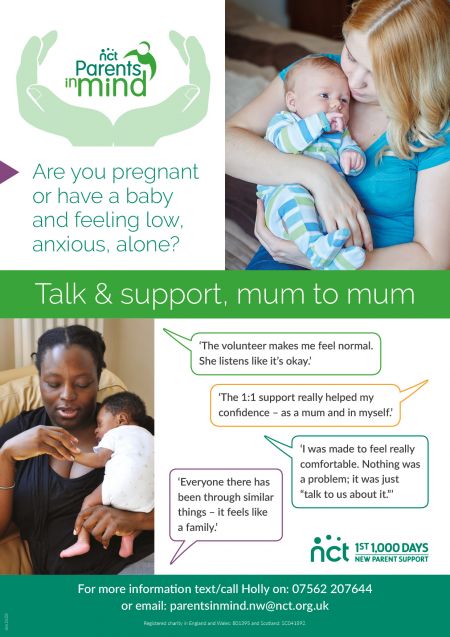
NCT Parent in Mind is a project running in Halton and St Helens (with a skeletal service now also available in Warrington) to provide perinatal mental health peer support to local mums, and partners (in St Helens only)
Find out more information about below.
Parents in Mind overview - Download here
Parents in Mind referral information and referral form - download here
For more information about Perinatal Pelvic Health Service visit our Physiotherapy service page

